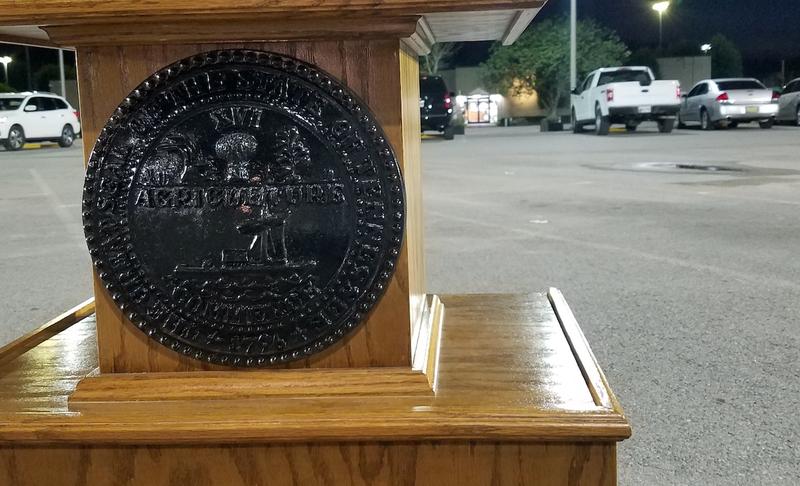
An East Tennessee man has been executed for the 1986 murder of a teenage girl and her mother.
Thursday night, Stephen West became the third person in the state to be put to death in the electric chair in less than a year. The electrocutions have come amid questions about whether the alternative, lethal injection, causes intense pain.
West was sentenced to death for raping 15-year-old Sheila Romines and for torturing and killing both her and her mother, Wanda, in their home in Anderson County. He contended that another man actually performed the killings, and he sought clemency on the grounds that he suffers from mental illness — the result of childhood abuse and neglect.
West was brought into the death chamber at Riverbend Maximum Security Institute shortly after 7 p.m. Strapped to the electric chair and his head shaved bald, West wept as guards made the final preparations for the execution.
A relative and his attorneys were on hand to watch. His final words were a combination of verses from Genesis and the Gospel of John.
“In the beginning, God created man, and Jesus wept,” he said, choking back tears. “That is all.”
There did not appear to be any obvious irregularities as two jolts of electricity were shot through West’s body at 7:19 p.m. He was pronounced dead eight minutes later, after a waiting period laid out by state law.
A statement read on behalf of Eddie Campbell, a relative of the Romines family, lamented that it had taken 33 years for West to be put to death.
“Most of our family is now deceased,” he wrote. “I have forgiveness in my heart … but I don’t think justice should be ignored.”
West chose the electric chair over lethal injection. He was one of many death row inmates who’ve argued that the first drug administered in Tennessee, midazolam, doesn’t render them unconscious. That could leave them susceptible to intense pain as the next two are given.
Courts haven’t agreed. But in Tennessee, people sentenced to death for crimes committed before 1999 have a choice between the two methods. Three of the past four have picked the electric chair.
Four more people in Tennessee are scheduled to be executed between now and next April. It’s not yet clear which method they’ll choose.
Besides challenging his method of execution, West has questioned the conviction itself. A second man, Ronnie Martin, pleaded guilty to the double murder, and while West admitted to being present, he has denied that he killed Sheila or Wanda Romines.
Because Martin was sentenced as a minor, he was not eligible for the death penalty. He will be eligible for parole in 2030.

Opponents keep vigil
Outside the prison, opponents of the death penalty prayed and sang “Amazing Grace,” hoping to send a message that would resonate with Gov. Bill Lee. West is the second man to be executed since he took office in January.
Among those in the crowd was David Bass, who says he’s visited the inmates on death row nearly every Monday night for five years.
“I consider them in so many ways my church.”
Bass says his visits have changed his views on the death penalty. Now, the men are more than just criminals to him. They’re friends, and they’ve supported him through a recent cancer diagnosis.
When Lee campaigned on a platform of faith and criminal justice reform, Bass and several of the others at the vigil thought the state’s position toward the death penalty might shift. But when 32 inmates wrote a letter to the governor, inviting him to pray with them last week, he didn’t respond.
“I would hope that Gov. Lee, who seems to be a very good, kind, caring and compassionate man, that maybe one day he can come and visit with my friends here on death row.”


